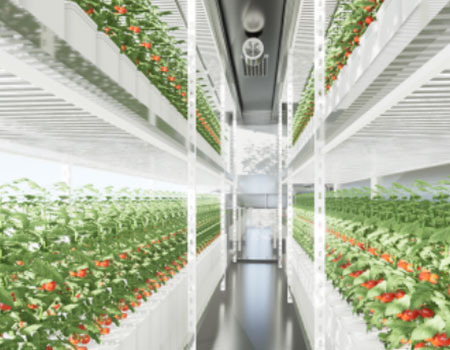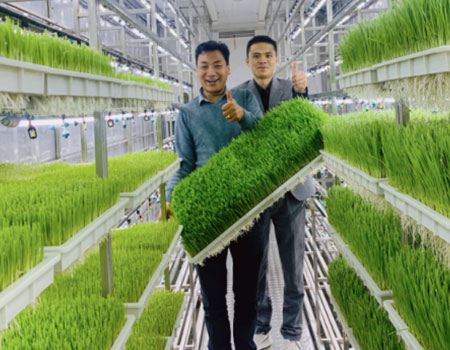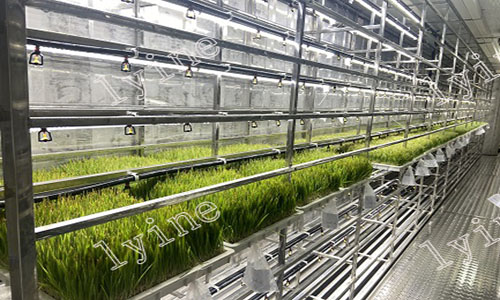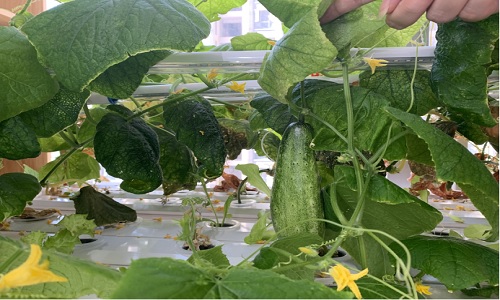Hydroponic cultivation is now very popular, and both elderly and young people want to try it out. In fact, hydroponic cultivation is not as simple as many people see and think, and there are still many difficulties for beginners to try hydroponic cultivation. Here we provide a few suggestions for beginners in hydroponic planting.
1. Choose the appropriate planting system
Hydroponic cultivation technology is just a planting form of soilless planting technology. There are many options for hydroponic cultivation systems, the most common of which are hydroponic tower systems, NFT systems, and zip systems. The hydroponic tower planting system is a fully automated soilless planting equipment, with small holes on the surface of the tower structure that can accommodate planting baskets. The three-dimensional planting method saves more planting space, and the new hydroponic tower system is equipped with a plant growth lamp, which is beneficial for increasing crop yield. The NFT system refers to a planting method in which crop roots grow in fixed channels, allowing water and nutrient solutions to flow through the fixed channels to provide nutrients for crop growth. This planting system is particularly suitable for fast-growing crops and can be used for household planting. The tiled NFT system is a popular hydroponic planting structure among them. Low investment cost and easy to manage. The Zip system is the most commonly used planting equipment in plant factories, with high space utilization and high water resource utilization.
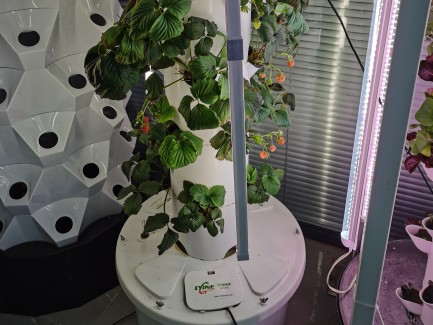
2. Control water and nutrient usage based on growth cycle
We all know that planting requires diligence, and traditional soil planting requires diligent maintenance and watering. However, changing water for hydroponic plants is not as frequent as possible. The time for changing water should be selected based on factors such as plant characteristics and seasons. Both aquatic plant and hygrophytes can adapt well to the hydroponic environment, and the water exchange interval of these plants can be longer. For plants that cannot adapt to the hydroponic environment for a long time after hydroponic culture, the water exchange should be more frequent, so that they can grow new roots and adapt to the hydroponic environment.
3. Proper use of nutrient solution
The most important aspect of hydroponic cultivation is nutrient solution. You can buy some specialized hydroponic nutrient solutions or prepare them yourself. The initial nutrient solution is usually diluted by 400 or 1000 times, and the concentration should not be too high.
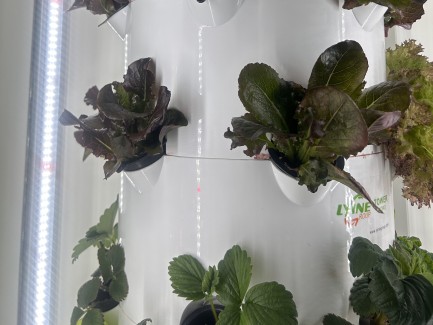
4. Regularly inspect plant roots to prevent necrosis
Compared to soil cultivation, hydroponic techniques have many advantages. For example, there is no need to water frequently, but this does not mean that hydroponics does not need to be ignored after planting. Plants that are soaked in water for a long time can become necrotic due to hypoxia, so regular inspections are necessary. When changing water for hydroponic plants, the root system should be checked, and decayed roots should be pruned in a timely manner. Soaking in water for a long time can quickly rot and affect the hydroponic environment of plants.
5. Pay attention to temperature
The environment for hydroponic plants should be kept warm and slightly moist all year round, with a temperature between 10-25 degrees Celsius being the most suitable, and a minimum of 5 degrees Celsius or above. After the temperature exceeds 30 degrees Celsius, the potted plants should be placed in a cool place to avoid excessive temperature. If necessary, water can be sprayed around to cool down. At the same time, avoid direct sunlight. Some crops are shade loving plants, and too strong ultraviolet radiation may damage crop growth.



.jpg)
